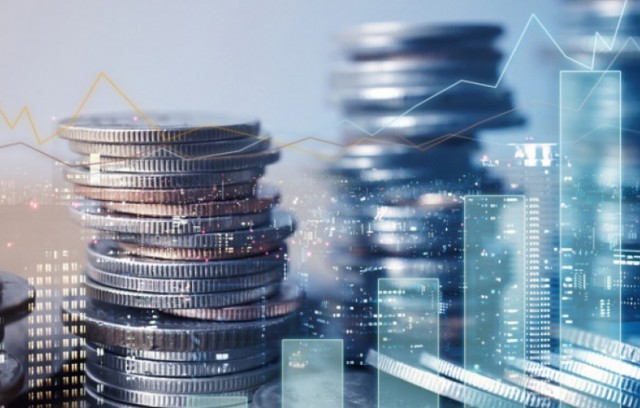According to a recent announcement, the General Economic Sentiment Index (EASE/ICAP CRIF-CEO General Index) declined to 146 points in the first quarter of 2025, down from 160 in the previous quarter. The survey was conducted between March 21 and April 4, 2025.
This decline reflects growing uncertainty and concern among CEOs regarding the potential repercussions of changing global trade dynamics, particularly for the economies of the European Union and Greece. These concerns stem from the recent announcement of increased tariffs by the United States and the retaliatory measures considered by other nations, contributing to a rise in protectionist trends in international economic relations.
The analysis of results by company size indicates that the index declined across all business categories. The Current Economic Conditions Index fell to 145 points from 159, while the Expectations Index decreased to 147 from 162.
A closer examination of the data reveals that the index measuring the current economic conditions in Greece dropped significantly to 195 points from 221 in the previous quarter. Only 24% of CEOs stated that the country's economic situation had improved compared to a year ago, down from 41%. This sentiment was even lower among CEOs of very large enterprises, where only 12% perceived an improvement.
Similarly, expectations regarding Greece’s economic outlook one year ahead also deteriorated. The relevant index declined to 161 from 186, with just 20% of CEOs anticipating an improvement over the next year, compared to 32% in the previous quarter. Among very large companies, the proportion dropped further to 13%.
The index reflecting the current state of individual sectors fell sharply to 163 points from 188. Only 23% of CEOs indicated that their sector was in a better position than a year ago, down from 39%, although that percentage was notably higher at 31% among CEOs in the services sector. The expectations index for future sector performance also saw a slight decrease, falling to 163 points from 167, with 26% of CEOs anticipating improved conditions within the next year.
The current economic situation of individual companies also worsened, with the index dropping to 118 points from 128. Nevertheless, 45% of CEOs reported that their companies' financial position had improved compared to a year earlier—a proportion that increased to 58% among industrial firms and 59% among very large enterprises. Expectations for the coming year also declined, with the index falling to 135 from 140. A total of 43% of CEOs expect their company’s performance to improve, though this figure drops to 31% among leaders of large firms.
Investment activity followed a similar trend. The index tracking current capital expenditure declined to 121 from 142. About 25% of CEOs said their companies’ investment spending was higher compared to the previous year. Among industrial firms and very large enterprises, this figure rose to 46% and 41% respectively. The investment expectations index recorded a significant drop to 137 from 158. Only 25% of CEOs expect investment to increase in the coming year, compared to 45% in the previous quarter, though 35% of CEOs in very large companies expressed a more optimistic outlook.
In contrast to most other indicators, the current employment index improved, rising to 128 points from 117. Over half (51%) of CEOs reported an increase in staffing levels compared to the previous year. This figure was even higher among industrial firms (71%) and very large companies (76%). However, expectations for future employment weakened, with the relevant index falling to 139 from 157. Some 32% of CEOs expect employment levels in their firms to rise over the next year, increasing to 41% among very large enterprises.
In addition to the standard quarterly questions, CEOs were also asked for their views on the impact that excluding defense spending from deficit calculations—under the proposed Rearm Europe plan—might have on debt management. Responses were evenly split between positive, neutral, and negative expectations. Notably, 39% of CEOs in the trade sector anticipated a negative impact, while 41% of CEOs in very large companies described the effect as neutral.
Furthermore, CEOs were asked whether they agreed with the view that EU-imposed tariffs would have a negative effect on the Greek economy. A significant 70% of respondents agreed that the impact would be adverse. Another 22% expressed uncertainty, while only 6% disagreed. Notably, CEOs of very large firms showed slightly less agreement (65%), whereas those in the industrial sector demonstrated greater concern, with 79% predicting a negative outcome.















